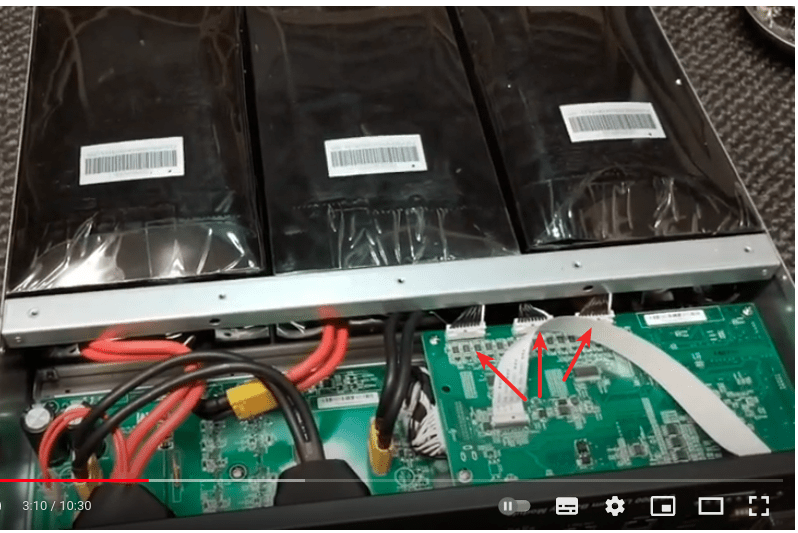For a long time RenewSolar has not “approved” pylontech batteries. There are a few reasons for this but one was the performance of the battery. We have to look back at the paid sponsors “advertising” to understand the false and misleading information that was given.
A solar battery is made up of two parts, the cells and the BMS, the cells are managed by the BMS and therefore to hold up to long term use, the cells C rates are important. usually the discharge is .5c or .2c as a rating.
For a Solar system, the inverter needs to draw power from the battery equal to the load and power of the inverter. They do need a little more due to losses and that’s around 5%.
A battery that can deliver 65amps can deliver 2.96 kw of power, therefore on a 3.6kw inverter there is clearly a short fall. This was later addressed and is the modified settings, previously the batteries were only able to delivery 2.5kw. and to date…..

As you can see this Pylontech battery is recommended to discharge at 25 amps, which is 1.1kw
The new larger battery packs from pylontech claim to offer 80 amps which has a * next to this. but this was changed from 65amps. The * says this:
: The recommended and max. continuous operation current is for a battery cell temperature within 10~40°C to consider, out of such temp. range will cause a derating on operation current.
We noticed that were get around 40oC charging and discharging. This means with pylontech batteries you are still not going to get the performance and, you will also get a shorter life cycle. you are looking at power delivery of around 2.2kw
The many pylontech videos made false claims as to short comings, it was everything else but the battery, when clearly it was the battery. in paticular was one channel on your tube, the false information spread to others, and there was a wide uptake in the batteries and how pylontech became a name you all love today.
80% Capacity loss
Due to the misleading, a report came in of 80% capacity loss in 8 years, from a battery that claims to have a 20% loss over 16 years. – You can watch that video here.
Why are they bad?
Batteries no matter what, can be good, there is not really a bad battery. what there is in terms of bad, is the working cycles the limits and where corners are cut. this combined with false claims, risky claims and settings would make a bad battery. There was no way they could meet the claims that were and are made and no colourful caveats as to why they will fail, fall short or just not work is going to make a difference.
You would have to over buy the batteries to meet basic needs and to ensure that they work for what you want. and you would need to know the tech and specs to be able to clearly do this for yourself.

I think the pouch cells within the pylontech really show what is considered a “lower” choice over prismatic cells. Not to say pouch cells are bad, but you have to consider the defects that can happen with this type of cell, such and inflation due to high current and temperature’s. This 6P would be charging at 13.3 amps per cell, if you have one fault…

As you can see here we have the over current/over temp/faulty pylontech battery with inflated cells.
we can also see it is a 15s pack. The support of this problem is nill, and there are many videos on line about this regular problem and a host of other issues.
To give you some idea of the difference between a RenewSolar battery (with pouch cells) and the Pylontech is that our cells are 10 times bigger. We use the larger cells as they keep cooler and have higher current capacity. (fault tolerance). Our Pouch battery is not currently listed on the website. But what we do know is that you do get a shorter cycle life from them.
Value for money?
The pylontech batteries may be a low cost option, but they are not good value, with lower quality, shorter life and a price tag around that of a decent pack, the difference is pretty clear.
a 3000 cycle pack vs 6000 cycles pack…
A current of 25-65 amps vs currents of 40-100 amps
To add insult to injury, the plyontech batteries are currently £350+ more!
See our battery here to compare. I dont think i could add more to that.
That’s going to be a “get more pay less” You don’t really get more capacity, that is roughly the same, but you will get more cycles and better power delivery.
So hopefully now you will see what we do not recommend pylontech and why.

2 Responses
Seeing more posts on groups about these batteries failing.
[…] Another Pylontech post […]